Books
Livres
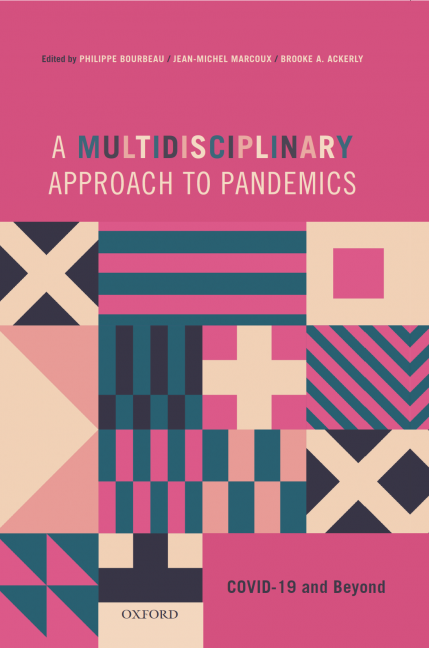
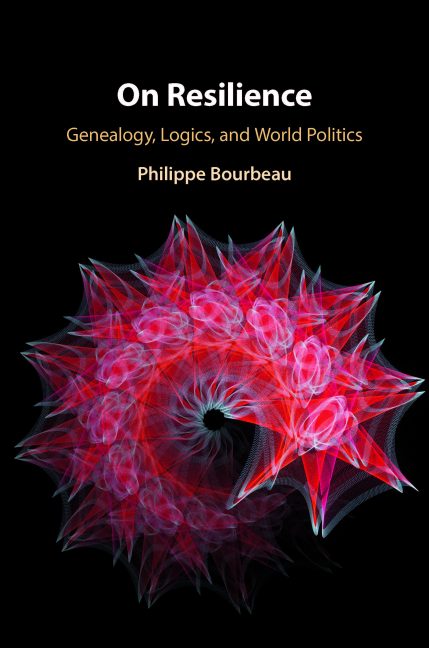
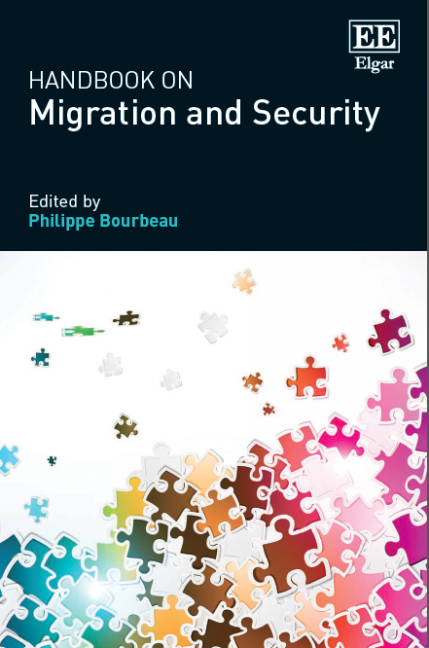
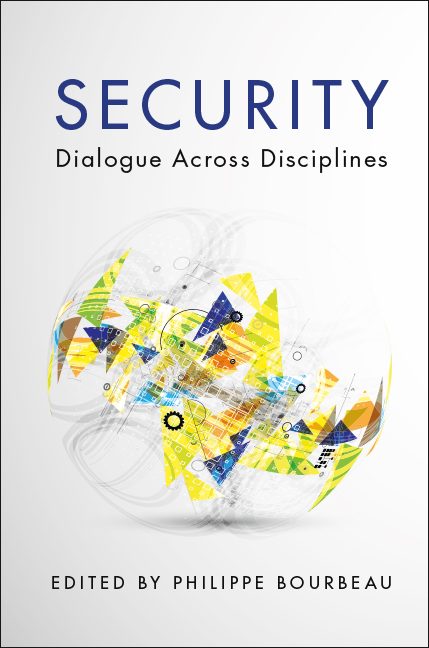
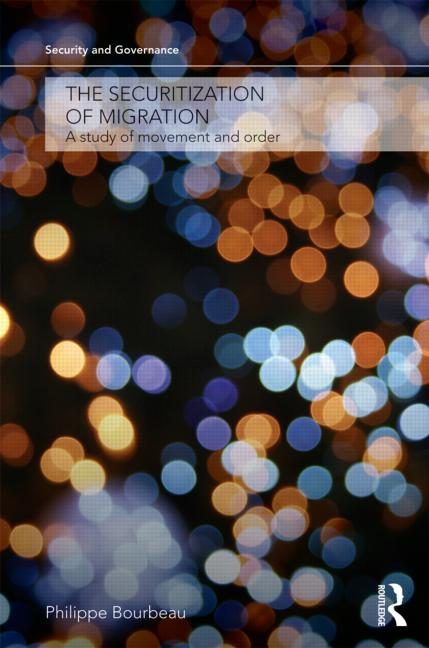
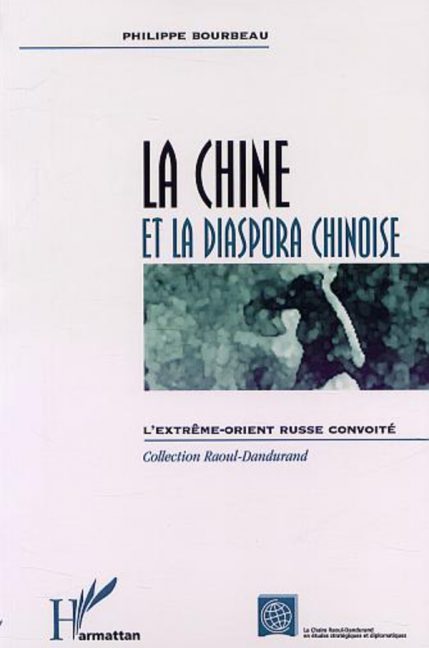
The study of pandemics is not new. Pandemics and global health have been one of the paramount research themes in several disciplines; each discipline focusing on a particular aspect of the issue. Yet, despite the volume of research interest in a host of academic fields, scholars rarely talk across the disciplines. They approach the study of pandemics/global health from a variety of theoretical and conceptual viewpoints fragmented across disciplines. This book seeks to make steps in filling that gap by attempting to bridge disciplinary canyons. The aim is not to offer a unique paradigm upon which to conduct research on pandemics. Rather, the main objective is to explore in a multidisciplinary way the growing diversity of definitions, approaches, theories, causes, and consequences of pandemics. Our goal is to generate a multidisciplinary dialogue about the ontological, epistemological, paradigmatic, and normative aspects of studying pandemics and global health. This volume invites readers from different fields to reflect on their conceptualisations of pandemics and to consider how a multidisciplinary dialogue can stimulate and enrich the understanding of pandemics in our contemporary world.
Contributors: Danièle Bélanger, Luc Bergeron, Christopher Bickerton, Andrea K. Bjorklund, Mary-Liéta Clément, Sara Davies, Jack A. Goldstone, Matthieu Guitton, Markus Herrmann, Michael Hooper, Maripier Isabelle, Sikina Jinnah, Dominic Johnson, Jean-Frédéric Morin, Robert Muggah, Amandine Orsini, Geneviève Parent, Christophe Roux-Dufort, Rachel Silvey, Julia Smith.
What does it mean to be resilient in a societal or in an international context? Where does resilience come from? From which discipline was it “imported” into International Relations (IR)? If a particular government instrumentalises the meaning of resilience to its own benefit should scholars reject the analytical purchase of the concept of resilience as a whole? Does a government have the monopoly of understanding how resilience is defined and applied? This book addresses these questions. Even though resilience in global politics is not new, a major shift is currently happening in how we understand and apply resilience in world politics. Resilience is indeed increasingly theorised, rather than simply employed as a noun; it has left the realm of vocabulary and entered the terrain of concept. This book demonstrates the multiple origins of resilience, traces the diverse expressions of resilience in IR to various historical markers, and propose a theory of resilience in world politics.
‘Inter-disciplinary perspectives are talked up so often perhaps because they are so rarely carried off successfully. Bourbeau’s book theorising resilience is one of these positive exceptions that marks a significant intervention in International Relations scholarship, shedding important new light on vitally topical areas from migration, to terrorism, to climate change.’ — Jason Sharman, Sir Patrick Sheehy Professor of International Relations, University of Cambridge
‘Resilience seems to be today’s buzzword in world politics – I see it everywhere. In this new book, Philippe Bourbeau offers a sophisticated theorisation of the concept of resilience, a fascinating case study on migrations, and many insightful suggestions for further research. His analysis helps us understand the many uses and abuses of the idea of resilience in contemporary international relations debates.’ — Séverine Autesserre, Barnard College, Columbia University
- ‘A timely and incisive theoretical intervention reintroducing the discipline of International Relations to the concept of resilience. A must-read for any serious student of IR theory.’ — Ayşe Zarakol, Reader in International Relations, University of Cambridge
Get 20% off for a limited time:
The Handbook on Migration and Security seeks to provide analyses of several aspects of the links between migration and security in a globalised world. This unique Handbook has two objectives: first, to explore the growing diversity of approaches, paradigms, questions, and methods developed to study the migration-security nexus; second, to initiate a multidisciplinary dialogue about the ontological, epistemological, explanatory, and normative aspects of the links between migration and security in social sciences and beyond. Drawing content from a wide range of international scholars, the volume examines the securitisation of migration across several disciplines and issue areas.
Themes covered: Political economy, Gendered bodies, Discourses and practices, Ethics, Urban studies, Detention, Environmental refugees, Resilience, Migrant smuglling, Surveillance, Xenophobia, Politicisation, Media, Pandemics, International organisations.
Contributors: Anthony M. Messina, Christopher Browning, Christopher Rudolph, Lauren Wilcox, Philippe Bourbeau, Ricard Zapata-Barrero, Lorenzo Gabrielli, Dan Zuberi, Ariel Taylor, Roxanne Doty, Gregory White, Marianne Potvin, Diane Davies, Anna Triandafyllidou, Valsamis Mitsilegas, Niovi Vavoula, Ariane Chebel d’Appollonia, Pietro Castelli Gattinara, Laura Morales, Alexander Caviedes, Christina Greenaway, Brian D. Gushulak, Antoine Pécoud, Martin Geiger, Mikhail A. Alexseev, Robert Muggah.
‘Managing migration flows used to be the remit of government departments of the interior and labour. Now foreign offices, anti-terrorist agencies and ministries of defence are involved. What accounts for this dramatic process of securitization? In the pioneering book, the editor and contributors go beyond familiar post 9/11 narratives to untangle the theoretical, discursive, gendered and political aspects of the question. The authors cover topics like smuggling, trade, migration policies and health pandemics, doing so in a conceptually challenging and original way.’ Robin Cohen, Emeritus Professor, University of Oxford
Reviewed in: Journal of Regional Security.
- ‘The excellent essays in this timely volume offer many key contributions to the emerging discussion of interdisciplinary security studies. By drawing on a wide diversity of current scholarly perspectives, the numerous valuable insights in these chapters move the conversation on this essential political concept ahead rapidly.’ Simon Dalby, Wilfrid Laurier University
-
‘The ubiquity of ‘security’ in public debates and throughout the social sciences makes this volume timely and essential reading for anyone wanting to look beyond narrow or conventional scholarly horizons. It is a unique and outstanding effort to communicate across disciplines.’ Keith Krause, Geneva-Graduate Institute of International and Development Studies
-
‘This volume’s common core questions addressed from each perspective provide just the right touch of thematic unity so the contributors are not simply talking past one another, but rather provide productive points of comparison that will be of great use for scholars and graduate students alike as a reference and also jumping off point for their own research. A fresh and timely contribution to help us all think in a sophisticated way through the flux of contemporary global security.’ Richard Price, University of British Columbia
-
“Bourbeau assembles an impressive array of distinguished contributors from around the world. Together, they illustrate the remarkable breadth of disciplines investigating security. The work should prove useful for students and scholars of security across these disciplines.” William Taylor, Angelo State University
Reviewed in H-Diplo, Journal of Baltic Security, Revue française de science politique, Choice, Études internationales.
-
‘An insightful and challenging study that expands the horizons of securitization theory and makes an important contribution toward understanding the international politics of migration. This is a book that addresses important questions, and that will interest anyone concerned with the politics of security today.’ Michael C. Williams , University of Ottawa
-
‘Clear, accessible, analytically sharp, and very informative, this book on the securitization’ of migration in France and Canada stands out in a genre that does not usually show these qualities.’ Christian Joppke, University of Bern
-
‘This insightful study adds empirical richness and comparative breadth linking Europe with North America to provide a pathbreaking analysis of the securitisation of migration in France and Canada.’ Andrew Geddes, European University Institute
-
‘While states have been securitizing migration for quite some time now, international relations theorists are still catching up. Using a range of methodologies, Bourbeau’s insightful comparative study of France and Canada carefully traces the process through which migration has been securitized since the end of the cold war. The Securitization of Migration is a timely and valuable contribution to the broader literature on migration and international relations.’ Peter Andreas, Brown University
- Hill, Christopher. “Multiculturalism meets International Politics. Review Articles”, Ethnicities, 2016.
- Messina, Anthony. “Securitizing Immigration in the Age of Terror. Review Articles”, World Politics, 2014, 66(3): 530-59.
- Czech Journal of Political Science.
L’objectif premier de cet essai est d’éclaircir la nature des rapports qu’entretient la Chine avec la diaspora chinoise et d’en mesurer la portée. En outre, il tente de cerner en quoi cette relation État-émigré spécifique affecte les relations sino-russes depuis la chute de l’URSS. Comment la Chine perçoit-elle la place de la Russie dans l’espace géostratégique du Nord-Est asiatique? Cette place est-elle compatible avec la présence de plusieurs milliers de Chinois ayant émigré en Extrême-Orient russe?
Peer-rewieved articles
Articles avec comité de lecture
Résumé
La résilience peut être définie comme le processus d’ajustements adopté par une société ou un individu faisant face à un ou des chocs endogènes ou exogènes afin de maintenir, marginalement modifier ou transformer un objet de référence – individuel ou collectif. Cet article analyse comment la recherche relative à la résilience dans les relations internationales a évolué durant les dernières années, plus particulièrement sur la question de son détachement ou de son rattachement au néolibéralisme, et du développement d’un programme de recherche en résilience, scellant l’indépendantisation de ce concept.
Abstract
Resilience can be defined as the process of adjustments adopted by a society or a person, facing one or multiple endogenous or exogenous impacts to maintain, marginally change, or transform an object of reference – individual or collective. This article analyses how research linked to resilience in international relations evolved for the past years, especially on the question of its detachment or connection to neoliberalism, and on the development of a research program on resilience, marking the concept’s independence.
Abstract
The theory of congruence in comparative federalism holds that institutional design will, eventually, reflect societal divisions by transferring central powers to new, autonomous entities. While this model helps to understand why many divided societies adopt federalism, it cannot explain why only certain unitary states transform into federal ones while others do not. We use a historical institutionalism approach to identify the critical junctures in the trajectory of two prominent plural polities, Belgium and Lebanon. We suggest that the politicization of identities during initial stages of state-building plays a major role in the transformation of a unitary state into a federation—which occurs in the former but not in the latter of our cases. The current contrast in both consociational democracies is explained here as a legacy of the late nineteenth century, which set in motion decisive logics of public governance that direct institutional dynamics until today.
Abstract
A great deal has been written in the past years about the process of institutionally integrating international migration into security frameworks that employ and induce control, policing, and defence—i.e., the securitisation of migration. The objective of this article is to complement these studies by focusing on the processes that contribute to the continuity of a securitised understanding of international migration. I suggest that the practice of detaining migrants in detention centres plays an important role in how the securitisation of migration gets perpetuated as the dominant lens through which the international movement of people is understood. In studying the securitisation of migration in Canada since the 1990s, I examine three processes: (1) that a mimetic process from criminal law to immigration law was instrumental in linking migration and security; (2) that practices and norms, especially the adjudication norms, were simultaneously at play in casting security as the dominant lens through which international migration is understood; and (3) that the practices of detaining migrants in centres resembling carceral facilities has helped to “lock in” an understanding of migration as a security issue.
Abstract
The use of the concept of resilience in social sciences is far from new. Several disciplines and fields of research, including psychology, child development, criminology, biology, ecology and social work, have laid out the components and strengths of a resilience approach in the past sixty years, if not beyond. While these disciplines have consolidated and expanded these viewpoints, resilience as emerged as an important and much-discussed theme in the public policy realm and in various sub-fields of world politics. At the same time as resilience is gaining popularity in world politics, a particular genealogy of resilience is structuring much of the critical literature in International Relations (IR): resilience was born in system ecology in the 1970s. On the basis of this particular genealogy, many IR critical theorists argue that resilience is a form of reasoning that participates in a neoliberal rationality of governance; seen in this light, resilience is lamentable. In this article, I propose a different, more extensive genealogy of resilience. I argue that before we can conduct an analysis of the application of resilience in world politics, we must understand the diverse paths through which resilience has percolated into international politics. By tracing the diverse expressions of resilience in world politics to various markers within the history of resilience, this article contends that this is an opportune moment to move scattered scholarships on resilience a step further and better theorise the relationship between resilience and world politics.
Abstract
A great deal has been written in the International Relations literature about the role of resilience in our social world. One of the central debates in the scholarship concerns the relationship between resilience and resistance, which several scholars consider to be one of mutual exclusivity. For many theorists, an individual or a society can either be resilient or resistant, but not both. In this article, we argue that this understanding of the resilience–resistance connection suffers from three interrelated problems: it treats resilience and resistance as binary concepts rather than processes; it presents a simplistic conception of resilient subjects as apolitical subjects; and it eschews the “transformability” aspect of resilience. In a bid to resolve these issues, the article advocates for the usefulness of a relational approach to the processes of resilience and resistance and suggest an approach that understands resilience and resistance as engaged in mutual assistance rather than mutual exclusion. The case of the Palestinian national liberation movement illustrates our set of arguments.Abstract
The use of numbers has been remarkably effective at pressing global claims. Whilst research has documented the historical processes through which numbers gained such prominence, and has examined the political and ethical consequences of this omnipresence, very little is known regarding the specific ways in which numbers create the outcomes that sustain governance. This article proposes to close that gap. It analyzes how using numbers in global security governance produces specific dynamics, and the circumstances within which these dynamics are more or less decisive. To do so, the article identifies three distinct but connected vectors of numbers: persuasion, (de)politicization, and standardization, which are essential in understanding how new forms of security governance take place. Building on the literature that acknowledges that numbers not only describe things but also have profound impacts on things themselves, this paper offers an integrated account of the working dynamics of numbers in the governance of security. These insights are exemplified through the prism of different empirical examples, the variety of which aims to display the advantages of the approach we propose.Abstract
Practices are capturing increased interest in International Relations (IR) of late. Throughout this article, I demonstrate that the body of work under review contributes to a progressive research agenda in world politics. As such, the high quality of the books under review attests to the dynamism of the practice turn. This review puts forward two main arguments. First, I distinguish at least four different forms of a practice approach on display in the reviewed books. Second, I suggest that practice is an essentially contested concept. Overall, this review article highlights some trends flowing from these books as well as some questions that remain either underdeveloped or unanswered.
Books under review: Autesserre, Séverine. 2014. Peaceland: Conflict resolution and the everyday politics of international intervention. Cambridge: Cambridge University Press; Bueger, Christian, and Frank Gadinger. 2014. International Practice Theory: New perspectives. London: Palgrave Macmillan; McNamara, Kathleen R. 2015. The Politics of Everyday Europe: Constructing Authority in the European Union. Oxford: Oxford University Press; Pouliot, Vincent. 2016. International Pecking Orders: The Politics and Practice of Multilateral Diplomacy. Cambridge: Cambridge University Press; Sending, Ole Jacob, Vincent Pouliot, and Iver B. Neumann. 2015. Diplomacy and the Making of World Politics. Cambridge: Cambridge University Press.
Translated as Bourbeau, Philippe, “Migration, Resilienz und Sicherheit”, in medico international (ed.) Fit für die Katastrophe. Der Resilienzdiskurs in Politik und Hilfe, Giessen, Psychosozial-Verlag, 2017.
Abstract
Resilience has gained substantial traction in international politics of late. This scholarship has sparked debates concerning the meaning of resilience and how scholar should go about studying it. Scholars attuned to Michel Foucault’s governmentality thesis argue that resilience is a product of contemporary neoliberalism and constitutes a strategy permitting states to abdicate responsibility in times of crisis. The overarching objective of this article is to tell a different socio-political story of the connections between resilience and international politics. In mapping International Relations scholars working on resilience, the gist of the argument presented here is that although resilience may be in some instances a neoliberal device for governance, it has a wider range of meanings as well. By setting out a different narrative of resilience, this article opens the possibility of an analysis that sees the emergence of resilience in international politics has holding great promise for renewing and deepening current International Relations debates, including securitization, international interventions, vulnerability, resistance, and the political use of myth.Abstract
In its current configuration, Security Studies tends to analyze the relationship between security, resilience, and non-security politics in cases where the issue of concern has been securitized, when some issue already has the status function and label of a security issue. The literature consistently frames desecuritization and resilience as processes that take place after an issue has been securitized. The overarching objective of this article is to tell a different socio-political story of the connections between desecuritization, resilience, and securitization. In order to do this, we present a triangular model of dual relationships among security, resilience, and non-security politics. By doing so, we propose a theorization of the relations among these concepts that takes into account not only instances in which desecuritization moves and resiliencization moves follow security, but also instances in which desecuritization and resilience arise before security – when securitization is still brewing. Empirical vignettes are employed throughout our discussion to illustrate key points of our argument.Abstract
In its current configuration, the literature on securitisation – the process of integrating an issue into a security framework that emphasises policing and defence – relies mainly on two logics: the logic of exception and the logic of routine. For some scholars, these two approaches to the study of securitisation frame a battleground on which a conflict among various structural, critical, cultural and sociological standpoints is waged. Although many graduate students cut their theoretical teeth on these debates, little has been gained thus far in the battle for possession of the field. By questioning the literature’s underlying understanding of these two logics as opposing and competing, I pursue two aims in this article. First, I seek to bolster current research on the securitisation process by moving the conversation away from its current analytical stalemate. I caution scholars against overdrawing distinctions between the two logics, for it is not clear that they are mutually exclusive. Second, I seek to recognise and harness the strengths of both logics, and to identify the fruitful theoretical ‘bricks’ each framework contributes to our understanding of securitisation. I illustrate the preceding set of arguments through an analysis of the social construction of migration as a security threat in France since the end of the Cold War.Abstract
In the past decade, a great deal has been written in the scholarly literature about the role of resilience in our social world. This scholarship has sparked vivid theoretical debates in psychology, criminology, social work and political geography about the nature of resilience and how scholars should go about studying it. Yet, International Relations and security studies have been relatively absent from the vibrant discussion. The term is employed but rarely unpacked, let alone theoretically analysed. This article outlines some necessary steps of convergence, enabling a coherent framework for a resiliencist approach to the study of the securitisation process. The bulk of the article lays out the premises of resiliencism, discusses the added value of the approach, suggests distinguishing between three types of resilience and illustrates the set of arguments with the case of the securitisation of migration in France and in Canada.Abstract
La question de la politisation des individus a récemment été posée avec beaucoup de finesse, rigueur et compétence dans le dossier paru en 2011 dans Critique internationale. Notre démarche se veut complémentaire. Convaincus que la recherche sur la politisation a fort à gagner à tisser davantage de liens avec la politique mondiale, nous voulons ici souligner la justesse et le bien-fondé d’une réflexion sur la politisation dans une perspective internationale, en juxtaposant les processus de politisation et les processus de sécuritisation dans le domaine des migrations internationales de l’après-guerre froide. L’argument central est que ces deux processus sont certes distincts mais qu’ils ne sont pas mutuellement exclusifs ni intrinsèquement en concurrence directe. Le cas des migrations internationales au Canada, en particulier la façon dont ces deux processus ont été mis en avant par certains agents médiatiques et politiques, illustre cette démonstration.Drawing upon the contributions to the 2011 special issue of Critique Internationale addressing the politicization of individuals, this article takes a complementary approach that underscores the relevance and validity of bringing an international perspective to bear on discussions of politicization by juxtaposing processes of politicization and securitization in the domain of post- Cold War international migrations. The main argument of the article is that these two processes, while distinct, are neither mutually exclusive nor intrinsically in competition with one another. The case of international migration to Canada and, in particular, the ways in which some media and political agents have emphasized these two processes serve to illustrate the argument.
Abstract
La perception des migrations internationales a significativement changé depuis la fin de la guerre froide. Auparavant largement traitées sous un angle économique et démographique, les migrations internationales sont depuis quelques années une préoccupation de sécurité de la majorité des pays membres de l’OCDE. Pour décrire ce virage sécuritaire, les chercheurs parlent de la sécuritisation des migrations ou de migrations qui évoluent dans un cadre sécuritaire. Or, si la littérature théorique sur le processus de sécuritisation est bien développée, la base empirique demeure incomplète et limitée, particulièrement l’analyse de contenu de discours réalisée de façon systématique et sur une période de temps relativement longue. Deux objectifs guident cet article. D’une part, l’auteur cherche à analyser, sur la base d’une étude comparative des discours de plusieurs agents politiques au Canada entre 1989 et 2011, le rôle de nombreux agents dans le processus de sécuritisation des migrations. D’autre part, il tente de dégager, en conclusion et sur la base de son analyse, des hypothèses de travail pour les études sur la sécuritisation des migrations.Chapters
Chapitres
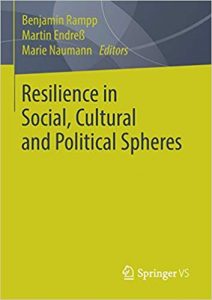
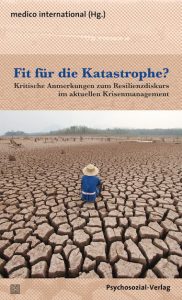
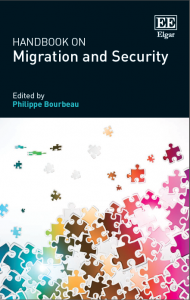
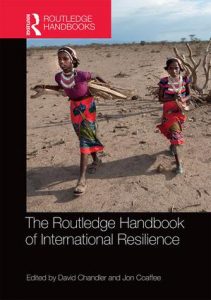
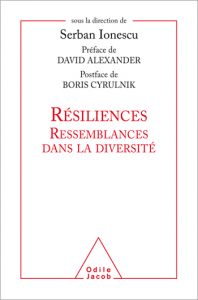
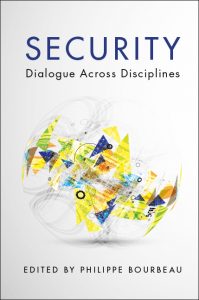
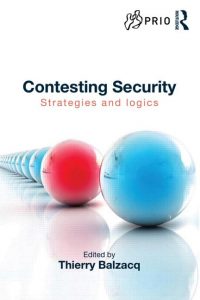
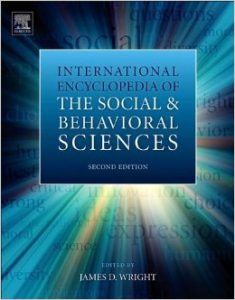
A great deal has been written in the International Relations literature about the role of resilience in our social world. One of the central debates in the scholarship concerns the relationship between resilience and resistance, which several scholars consider to be one of mutual exclusivity. For many theorists, an individual or a society can either be resilient or resistant, but not both. In this article, we argue that this understanding of the resilience–resistance connection suffers from three interrelated problems: it treats resilience and resistance as binary concepts rather than processes; it presents a simplistic conception of resilient subjects as apolitical subjects; and it eschews the “transformability” aspect of resilience. In a bid to resolve these issues, the article advocates for the usefulness of a relational approach to the processes of resilience and resistance and suggest an approach that understands resilience and resistance as engaged in mutual assistance rather than mutual exclusion. The case of the Palestinian national liberation movement illustrates our set of arguments.
The ubiquity of resilience – the process of patterned adjustments adopted by a society or an individual in the face of endogenous or exogenous shocks – across the broad social sciences spectrum is undisputable. Yet, migration scholars have been relatively absent from this vibrant discussion. The present article suggests a theorization of the link between migration, resilience, and security by examining ways in which resilience precedes a socially constructed understanding of international migration as a security issue. The article explores how the surge in worldwide refugee numbers and associated mass migration phenomena were not only interpreted as a shock in post-Cold War France, but also instrumentalised by dominant discourses to underscore the necessity of adopting a particular pattern of adjustments to uphold the status quo against changes provoked by these migratory events. The social construction of refugee movements and mass migration as a significant disturbance requiring France to opt for a resilient strategy has led, ultimately, to the securitization of migration. In a broader sense, the article presents a new lens through which to analyze situations and conditions in which resilience has led to and induced the securitization of migration.